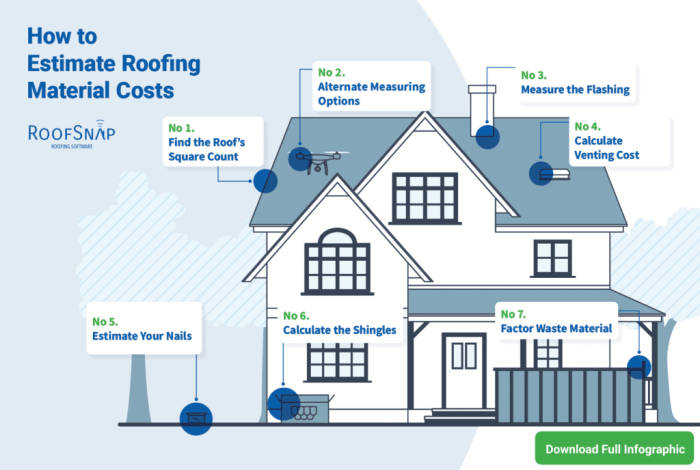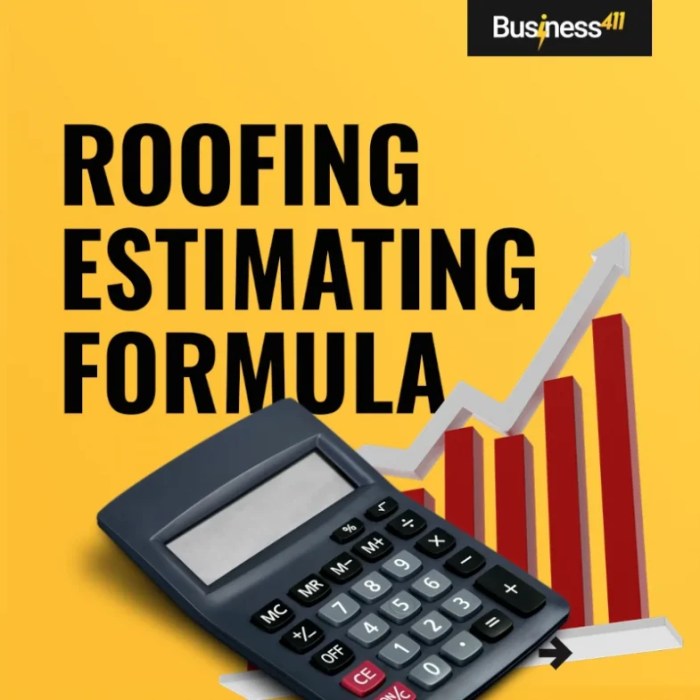
Embarking on the journey of understanding Roof Estimate Terms for Property Buyers, this introductory paragraph aims to pique the interest of readers with valuable insights presented in a formal yet engaging manner.
Delving into the intricacies of roof estimates, this paragraph sets the stage for a comprehensive exploration of key terms and concepts essential for property buyers.
Roof Estimate Overview

When buying a property, one crucial aspect to consider is the condition of the roof. A roof estimate provides valuable information for property buyers by detailing the potential costs and necessary repairs or replacements needed for the roof.
Purpose of a Roof Estimate
- A roof estimate helps property buyers assess the current condition of the roof and anticipate any future maintenance or repair costs.
- It allows buyers to budget effectively and negotiate the property price based on the estimated roof repair or replacement expenses.
- Having a roof estimate can also help buyers make informed decisions about the property's overall value and potential investment returns.
Information Included in a Roof Estimate
- The type of roofing material used and its condition.
- An assessment of the roof's age and expected lifespan.
- Details on any existing damage, leaks, or weak spots on the roof.
- Cost estimates for repairs, replacements, or maintenance work needed.
Common Terms in Roof Estimates
- Roof Pitch:The slope or angle of the roof, which can affect the cost of materials and labor.
- Square:A unit of measurement equivalent to 100 square feet of roof area.
- Flashing:Metal strips used to prevent water leakage around roof openings, such as chimneys or skylights.
- Soffit:The underside of the roof overhang, which provides ventilation for the attic space.
Roofing Materials Breakdown
When it comes to roofing materials mentioned in estimates, there are several options to consider. Each type of roofing material comes with its own set of pros and cons that property buyers should be aware of. The choice of roofing material can significantly impact the overall estimate for a property.
Asphalt Shingles
- Asphalt shingles are one of the most popular roofing materials due to their affordability and ease of installation.
- Pros: Cost-effective, available in various colors, and relatively easy to repair.
- Cons: Not as durable as other materials, may require more frequent replacement.
Metal Roofing
- Metal roofing is known for its longevity and durability, making it a popular choice for many property owners.
- Pros: Long lifespan, energy-efficient, recyclable, and low maintenance.
- Cons: Higher initial cost, can be noisy during rain or hail storms.
Wood Shakes
- Wood shakes offer a natural and rustic look to a property, adding charm and character.
- Pros: Aesthetic appeal, good insulation properties, and environmentally friendly.
- Cons: Prone to rot, mold, and insect damage, requires regular maintenance.
Slate Roofing
- Slate roofing is a premium option known for its elegance and longevity.
- Pros: Extremely durable, fire-resistant, enhances property value.
- Cons: Expensive upfront cost, heavy material, requires specialized installation.
Labor Costs and Services
When it comes to a roof estimate, labor costs play a significant role in determining the overall price of the project. Understanding the various services included in a roof estimate and how labor costs are calculated can help property buyers make informed decisions.
Labor Costs Involved in a Roof Estimate
- Roof size: The size of the roof is a key factor in determining labor costs, as larger roofs require more time and manpower to complete.
- Roof pitch: Steeper roofs are more challenging to work on and may require specialized equipment or additional safety measures, impacting labor costs.
- Complexity of the roof: Roofs with multiple angles, levels, or features such as skylights or chimneys may require extra labor and expertise.
Services Typically Included in a Roof Estimate
- Roof inspection: A thorough examination of the roof to identify any issues or areas in need of repair.
- Roof repair or replacement: Depending on the condition of the roof, services may include repair of damaged areas or a complete replacement.
- Clean-up and debris removal: After the project is completed, contractors typically clean up the work area and dispose of any debris.
Calculating Labor Costs and What They Entail
- Hourly rates: Some contractors charge by the hour for labor, while others may provide a flat rate for the entire project.
- Materials and equipment: Labor costs often include the use of specialized tools, equipment, and materials needed for the job.
- Experience and expertise: Skilled laborers with extensive experience may come at a higher cost but can ensure quality workmanship.
- Overhead expenses: Contractors factor in overhead costs such as insurance, licensing, and employee wages when calculating labor costs.
Warranty and Insurance Considerations

When reviewing a roof estimate as a property buyer, it is crucial to pay attention to the warranties and insurance coverage mentioned. These aspects can greatly impact your long-term investment and peace of mind.: Warranties and insurance play a critical role in protecting your investment in a new roof.
Understanding the types of coverage included in the estimate can help you make an informed decision and ensure that you are adequately protected in case of any issues.
Types of Warranty Coverage
- Manufacturer's Warranty: This covers defects in the roofing materials and is usually provided by the manufacturer.
- Workmanship Warranty: This warranty ensures that the installation of the roof is done correctly and covers any errors in the workmanship.
- Extended Warranty: Some contractors offer extended warranties for an additional cost, providing extra protection beyond the standard warranties.
Insurance Coverage
- General Liability Insurance: This protects against property damage or injuries that may occur during the roofing project.
- Worker's Compensation Insurance: This coverage ensures that you are not held liable if a worker is injured while working on your property.
- Roofing Contractor's Insurance: Make sure the contractor has insurance specifically tailored to cover any issues related to roofing work.
What to Look for in Warranties and Insurance
- Transferability: Check if the warranties are transferable if you decide to sell the property.
- Length of Coverage: Ensure that the warranties provide sufficient coverage for the expected lifespan of the roof.
- Exclusions: Pay attention to any exclusions or limitations in the warranties to understand what is not covered.
- Insurance Certificates: Request to see copies of the contractor's insurance certificates to verify coverage.
Wrap-Up
Wrapping up our discussion on Roof Estimate Terms Explained for Property Buyers, this final paragraph encapsulates the key takeaways in a compelling manner, leaving readers with a deeper understanding of the subject.
Common Queries
What is the purpose of a roof estimate for property buyers?
A roof estimate helps property buyers understand the potential costs involved in repairing or replacing a roof, allowing them to make informed decisions about their purchase.
How are labor costs calculated in a roof estimate?
Labor costs in a roof estimate are typically calculated based on factors such as the size of the roof, complexity of the job, and prevailing labor rates in the area.
Why are warranties important in a roof estimate for property buyers?
Warranties provide assurance to property buyers that the roofing work is of high quality and that they are protected in case of any issues after the installation.










